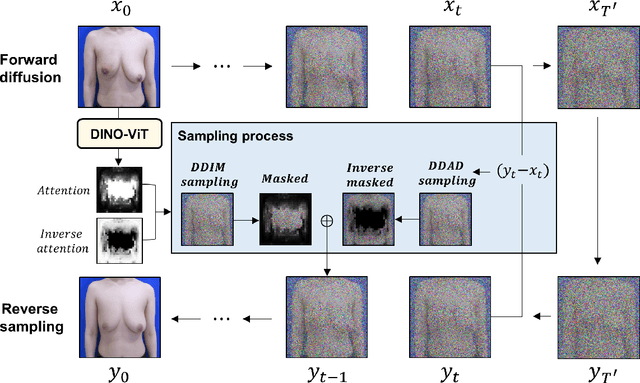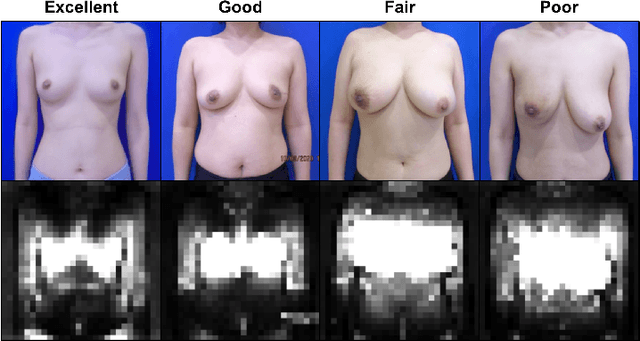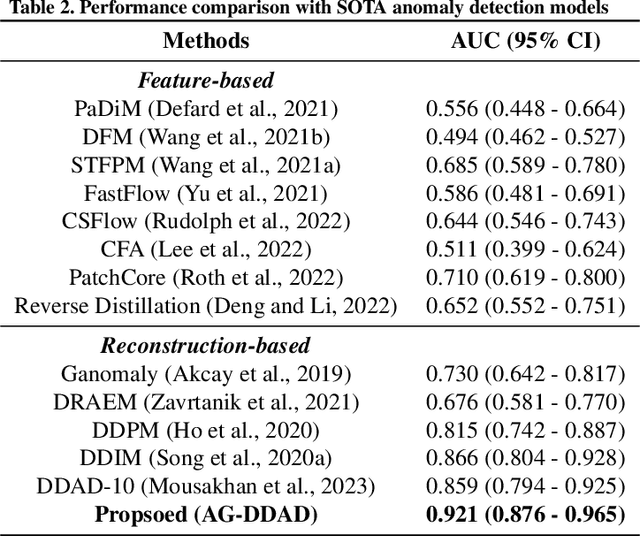Objective and Interpretable Breast Cosmesis Evaluation with Attention Guided Denoising Diffusion Anomaly Detection Model
Paper and Code
Feb 28, 2024



As advancements in the field of breast cancer treatment continue to progress, the assessment of post-surgical cosmetic outcomes has gained increasing significance due to its substantial impact on patients' quality of life. However, evaluating breast cosmesis presents challenges due to the inherently subjective nature of expert labeling. In this study, we present a novel automated approach, Attention-Guided Denoising Diffusion Anomaly Detection (AG-DDAD), designed to assess breast cosmesis following surgery, addressing the limitations of conventional supervised learning and existing anomaly detection models. Our approach leverages the attention mechanism of the distillation with no label (DINO) self-supervised Vision Transformer (ViT) in combination with a diffusion model to achieve high-quality image reconstruction and precise transformation of discriminative regions. By training the diffusion model on unlabeled data predominantly with normal cosmesis, we adopt an unsupervised anomaly detection perspective to automatically score the cosmesis. Real-world data experiments demonstrate the effectiveness of our method, providing visually appealing representations and quantifiable scores for cosmesis evaluation. Compared to commonly used rule-based programs, our fully automated approach eliminates the need for manual annotations and offers objective evaluation. Moreover, our anomaly detection model exhibits state-of-the-art performance, surpassing existing models in accuracy. Going beyond the scope of breast cosmesis, our research represents a significant advancement in unsupervised anomaly detection within the medical domain, thereby paving the way for future investigations.
 Add to Chrome
Add to Chrome Add to Firefox
Add to Firefox Add to Edge
Add to Edge